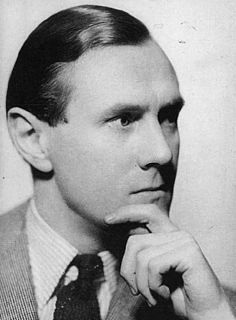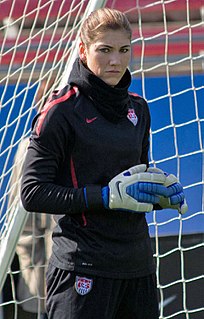A Quote by Patrick White
She had begun to read in the beginning as a protection from the frightening and unpleasant things. She continued because, apart from the story, literature brought with it a kind of gentility for which she craved.
Related Quotes
A woman can do anything. She can be traditionally feminine and that's all right; she can work, she can stay at home; she can be aggressive; she can be passive; she can be any way she wants with a man. But whenever there are the kinds of choices there are today, unless you have some solid base, life can be frightening.
The story of my grandmother is that of a French woman from the provinces who through her perseverance and thirst for knowledge worked her way up to become the head of a school. She belonged to a generation that didn't travel much. But she believed in Europe and she wanted Europe. And she read a lot - she knew mythology, literature and the classics very well. She passed that on to me, along with the conviction that you can earn your own position in society.
My mother lived her life through movies and books - she read everything there was to read. And she read to me every night. I never went to sleep without her reading to me. And she fantasized about the book and she would talk about it, the place, and you would think that after she read the book and after she told you stories about it, that she had actually been there. I learned about story from her, and I learned the value of a great story, and the value of great characters.
She had witnessed the world's most beautiful things, and allowed herself to grow old and unlovely. She had felt the heat of a leviathan's roar, and the warmth within a cat's paw. She had conversed with the wind and had wiped soldier's tears. She had made people see, she'd seen herself in the sea. Butterflies had landed on her wrists, she had planted trees. She had loved, and let love go. So she smiled.
She was made up of more, too. She was the books she read in the library. She was the flower in the brown bowl. Part of her life was made from the tree growing rankly in the yard. She was the bitter quarrels she had with her brother whom she loved dearly. She was Katie's secret, despairing weeping. She was the shame of her father stumbling home drunk. She was all of these things and of something more...It was what God or whatever is His equivalent puts into each soul that is given life - the one different thing such as that which makes no two fingerprints on the face of the earth alike.
In this moment she felt that she had been robbed of an enormous number of valuable things, whether material or intangible: things lost or broken by her own fault, things she had forgotten and left in houses when she moved: books borrowed from her and not returned, journeys she had planned and had not made, words she had waited to hear spoken to her and had not heard, and the words she meant to answer with. . . .
Daisy was a consciously happy young woman without any of the usual endowments that make for conscious happiness, money apart. She was not pretty, she was not clever, she had no friends, no talents, nor even an imagination to make her think she was happy when she was really miserable. As she was never miserable, she had no need of an imagination.
Someday no one will remember that she ever existed, I wrote in my notebook, and then, or that I did. Because memories fall apart, too. And then you're left with nothing, left not even with a ghost but with its shadow. In the beginning, she had haunted me, haunted my dreams, but even now, just weeks later, she was slipping away, falling apart in my memory and everyone else's, dying again.
He thought about the story his daughter was living and the role she was playing inside that story. He realized he hadn't provided a better role for his daughter. He hadn't mapped out a story for his family. And so his daughter had chosen another story, a story in which she was wanted, even if she was only being used. In the absence of a family story, she'd chosen a story in which there was risk and adventure, rebellion and independence.


































